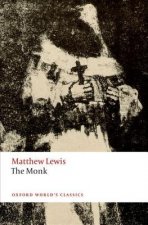
Kód: 04231907
Buchenwald Child
Autor Bill Niven
For its leaders, the German Democratic Republic was founded on the legacy of communist resistance to Nazism. They laid particular emphasis on events at Buchenwald, where communist-led prisoners allegedly threw off the fascist yoke ... celý popis
- Jazyk:
 Angličtina
Angličtina - Vazba: Brožovaná
- Počet stran: 258
Nakladatelství: BOYDELL & BREWER INC, 2009
- Více informací o knize

Mohlo by se vám také líbit
-

Nahý mezi vlky
0 Kč
Darujte tuto knihu ještě dnes
- Objednejte knihu a zvolte Zaslat jako dárek.
- Obratem obdržíte darovací poukaz na knihu, který můžete ihned předat obdarovanému.
- Knihu zašleme na adresu obdarovaného, o nic se nestaráte.
Více informací o knize Buchenwald Child
Nákupem získáte 90 bodů
 Anotace knihy
Anotace knihy
For its leaders, the German Democratic Republic was founded on the legacy of communist resistance to Nazism. They laid particular emphasis on events at Buchenwald, where communist-led prisoners allegedly threw off the fascist yoke in a heroic act of self-liberation (although in reality they were liberated by the American army). A key strand in the Buchenwald narrative was the tale of the rescue by communist prisoners of a three-year-old Jewish prisoner, Stefan Jerzy Zweig. His story became a powerful focus for the country's celebration of its antifascist past. Bruno Apitz's novel Naked among Wolves, which describes Zweig's rescue, was published in 1958 and became an immediate bestseller. It was later adapted into a highly successful cinema film, and became a staple of the school curriculum. In 1963, a campaign to find Zweig -- by this time a grown man -- met with success when he was located in Lyon and offered the chance to study in the GDR. Bill Niven sets out to establish what really happened to Zweig in Buchenwald. Why was he protected by adult prisoners, and at what price? (There is evidence that a Sinto boy was sent to Auschwitz in Zweig's place, perhaps as a result of the influence of communist prisoners, evidence that was suppressed in the GDR.) Niven explores how Zweig's story was presented in East Germany and examines what that reveals about the country's understanding -- and use of -- the Nazi past and the Holocaust. He then examines the postunification reception of Zweig's story: in a unified Germany dominated by west Germans, the GDR's deployment of the story has come in for heavy criticism -- which in turn serves the politicized end of condemning East Germany's approach to the Nazi past. Bill Niven is Professor of Contemporary German History at the Nottingham Trent University, UK.
 Parametry knihy
Parametry knihy
Zařazení knihy Knihy v angličtině Humanities History History: specific events & topics
900 Kč
- Plný název: Buchenwald Child
- Autor: Bill Niven
- Jazyk:
 Angličtina
Angličtina - Vazba: Brožovaná
- Počet stran: 258
- EAN: 9781571134042
- ISBN: 1571134042
- ID: 04231907
- Nakladatelství: BOYDELL & BREWER INC
- Hmotnost: 372 g
- Rozměry: 230 × 157 × 19 mm
- Datum vydání: 01. June 2009
Oblíbené z jiného soudku
-

Man's Search For Meaning
383 Kč -

Homo Deus
337 Kč -

Monk
211 Kč -

Modernity and the Holocaust
588 Kč -

Diary of a Young Girl
258 Kč -

Imperialism: The Highest Stage of Capitalism
185 Kč -

The Choice
337 Kč -

Death Dealer
458 Kč -

Scented Palace
529 Kč -

Taranto 1940
543 Kč -

Man's Search for Meaning
180 Kč -

Women, Race & Class
259 Kč -

Ascent of Money
356 Kč -

The Complete MAUS
445 Kč -

Ordinary Men
288 Kč -

The Rape of Nanking
396 Kč -

Holocaust Industry
291 Kč -

Mein Kampf - The Ford Translation
885 Kč -

Conquerors
297 Kč -

Scouting for Boys
258 Kč -

White Gold
334 Kč -

Eichmann in Jerusalem
288 Kč -

Madness and Civilization
371 Kč -

Bloodlands
347 Kč -

East West Street
269 Kč -

Delirious New York
636 Kč -

Women's Work
484 Kč -

Twelve Years a Slave
84 Kč -

More Money Than God
384 Kč -

Diary of a Young Girl
190 Kč -

Secret Lives of Colour
396 Kč -

Eichmann in Jerusalem
346 Kč -

Mein Kampf
672 Kč -

Square and the Tower
396 Kč -

Corgi Toys
361 Kč -

Discourse on Colonialism
288 Kč -

Empires of the Sea
334 Kč -

If This Is A Man/The Truce
334 Kč -

Origins of Museums
1343 Kč -

1960s Scrapbook
446 Kč -

Night
276 Kč -

Queer Little History of Art
383 Kč -

Victorian House
433 Kč -

London Labour and the London Poor
131 Kč -

This Way for the Gas, Ladies and Gentlemen
320 Kč -

Bitten By Witch Fever
758 Kč -

Operation Barbarossa
288 Kč -

Influence of Sea Power Upon History, 1660-1783
596 Kč -

Story of Esci
674 Kč
Osobní odběr Praha, Brno a 12903 dalších
Copyright ©2008-24 nejlevnejsi-knihy.cz Všechna práva vyhrazenaSoukromíCookies



 Vrácení do měsíce
Vrácení do měsíce 571 999 099 (8-15.30h)
571 999 099 (8-15.30h)